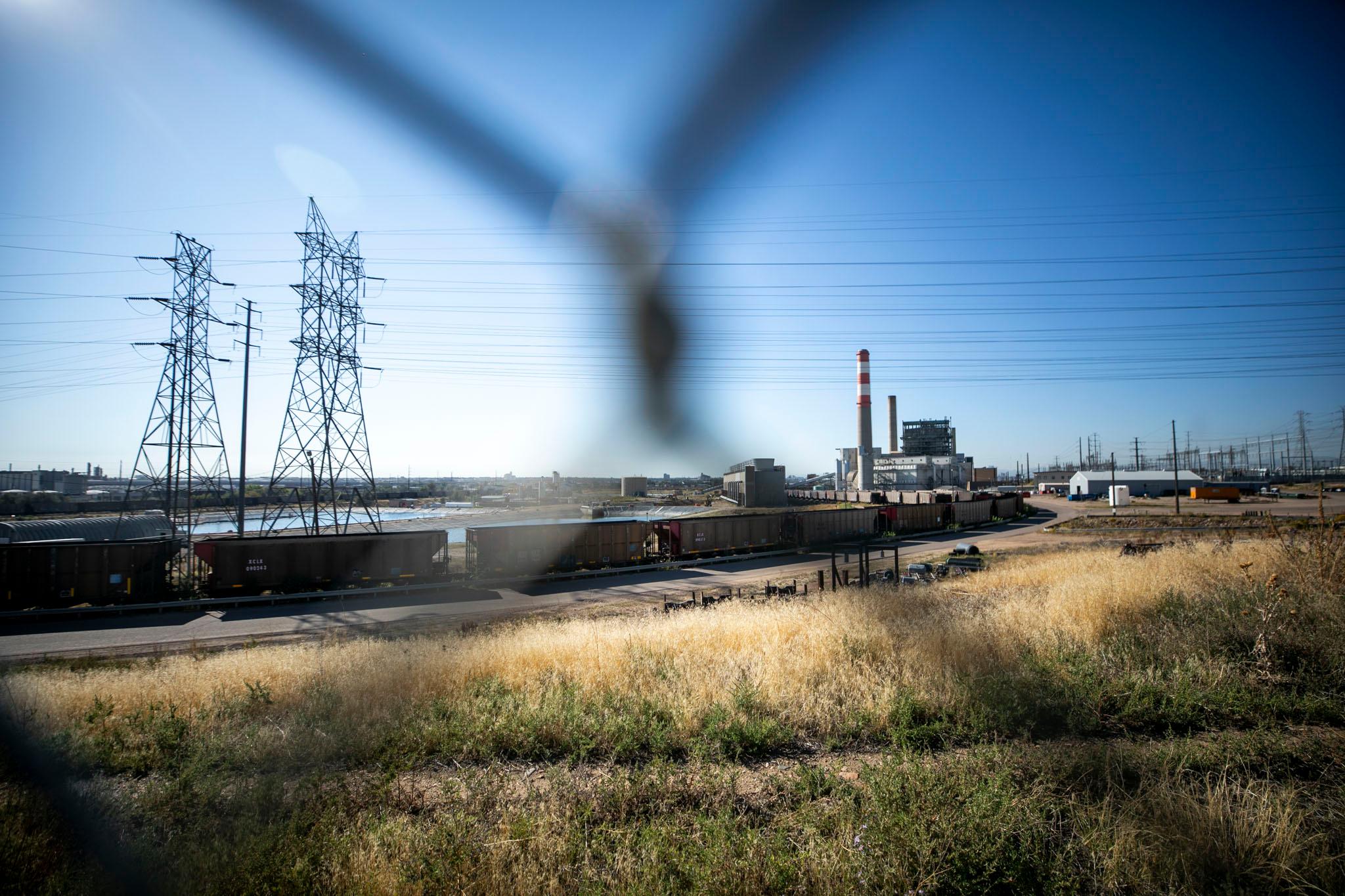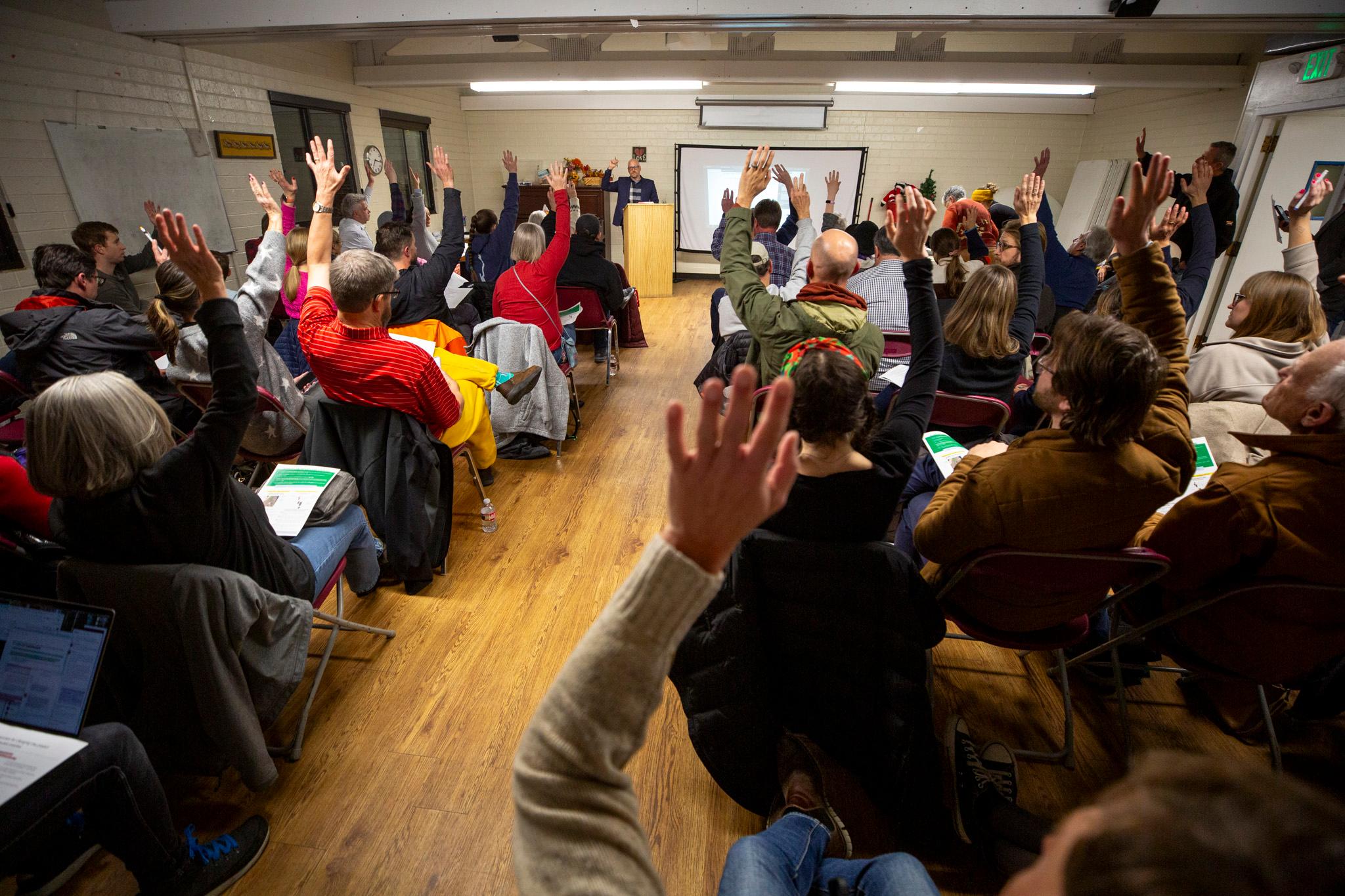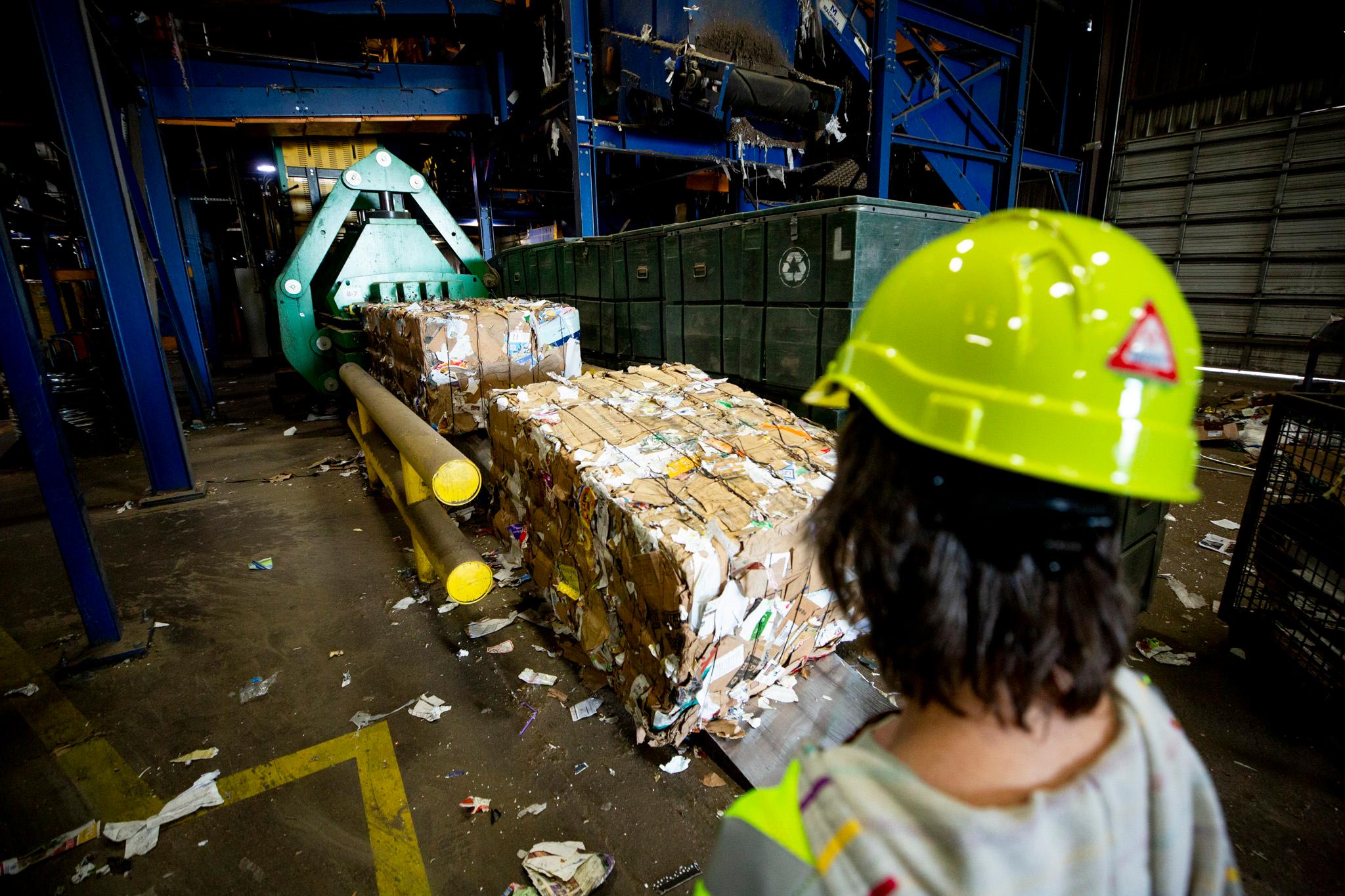It’s been six years since Xcel Energy cleaned out toxic coal ash from sites in North Denver, but regulators say they’re still keeping a close eye on those former dumping grounds.
Last week, the U.S. Environmental Protection Agency announced a $134,500 settlement with Xcel Energy over groundwater monitoring at their Cherokee Generating Station — it's the big red-striped smokestack along the city's northern border.
The issue at hand was how they tested for fallout from four coal ash impoundments, which are dumping sites for waste generated when coal is burned for power. Coal ash is toxic and can be tricky to manage.
The Cherokee plant stopped burning coal in 2017 — it now runs just on natural gas — and cleared the actual ash out of those four impoundments by 2018. But they are still required to monitor groundwater for potential impacts from the old pits, and EPA alleged they weren't doing it the right way.
Xcel has drilled four new, deeper monitoring wells and made other changes to better track pollution.

The pits, or former ponds, surround the power plant, and were used for temporary storage of ash before it was carted off to a dump or sold into the “beneficial reuse” market as a construction material.
They were unlined when they were in use, which opened the door for chemicals and heavy metals to seep into the soil. While EPA took issue with how Xcel monitored for these toxins, the utility did report elevated lithium levels in nearby groundwater. Boron, cobalt and molybdenum have also been measured there at levels above federal standards.
The settlement is part of a broader push to enforce coal ash rules across the country. EPA attorneys who worked on this case told us Xcel cooperated throughout the process; Xcel said the same, though with a caveat:
"While Xcel Energy did not agree with the allegations, we proactively worked to address the alleged deficiencies and resolve the action through a cooperative agreement with EPA," Xcel spokesperson Tyler Bryant wrote us. "We remain fully committed to compliance."
It's the second time Xcel has settled with EPA under a new-ish quest to fix coal ash issues in the U.S.
In 2016, EPA attorney Chuck Figur told us, Congress gave the agency power to enforce federal rules governing coal ash storage, which were rolled out in 2015. His colleague, Kristin McNeill, said the new federal focus was driven by a massive coal ash spill in North Carolina in 2014.
Figur said authorities previously relied on companies like Xcel to "self implement" their compliance to the new rules, until Congress gave EPA its new enforcement powers. As the regulators looked closer, they found violations everywhere.
"When we started taking a look around, that's when we started noticing noncompliance," Figur told us.
EPA’s first settlement under the new regime was with Xcel Energy, citing its Pueblo Comanche Station for failure to correctly monitor groundwater. The utility settled with EPA for $900,000 in 2022. That plant still burns coal, though there’s a major plan in the works to turn it into a green energy hub.
EPA found enough mismanaged coal ash across the country that they decided to put a special emphasis on dealing with it. A year ago, the agency named their coal ash program as an "enforcement initiative" between 2024 and 2027.
Xcel's settlement over the Cherokee station comes early in this period of extra attention.
Linda Jacobson, an EPA attorney who worked with Figur on the case, said Xcel's violations boiled down to the number of wells they used to monitor the toxic substances that may still be dripping out of Cherokee's former coal ash pits, and how they compiled and presented data to determine if there was a problem.
“It is more important than just paperwork,” she said.
McNeill said the problems amounted to a “canary” being absent from the “coal mine” — or coal pit, in this case. Xcel wasn’t doing what they needed to ensure this old bed of heavy metals and chemicals wasn’t polluting local groundwater, the attorneys alleged.
Though utilities like Xcel are moving away from coal, and its inherently toxic waste stream, McNeill added that there’s plenty of ash left around the country to keep EPA busy with more enforcement like this.
“There'll be enough to continue into the future,” she told us. “We don't exactly know when this will end.”
And whether a recent U.S. Supreme Court decision limiting EPA’s powers to enforce rules about smokestack emissions will impact their coal ash quest, Figur added, “remains to be seen.”












